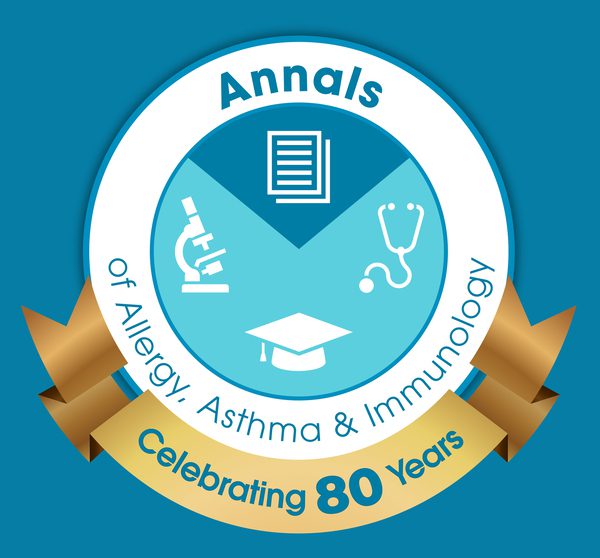As we get ready to start a new year, the current issue of our Annals in Allergy, Asthma and Immunology focuses on a key problem affecting allergy-immunology and the world today: global warming.
The effect of climate change is highlighted in an editorial by David R. Stukus, MD that stresses the important role that allergists can play in helping our patients who are being affected by the effects of global warming and climate change. Four articles in this issue highlight how climate change has affected diseases such as atopic dermatitis, asthma, allergic rhinitis and allergies in general. One example of the effect of climate change is that pollen seasons are lasting longer and starting earlier due to environmental warming. The CME review by Hana Seastedt, MS and Kari Nadeau, MD, PhD discusses how global fires and dust storms have increased atopic disease and worsened allergies. Global warming also has been shown to lead to disruption of the epithelial barrier, and as a result, alarmins can be induced, which leads to increasing T2 inflammation in allergy. Jessica W. Hui-Beckman, MD and colleagues describe these changes in atopic dermatitis and Ozdemir, et al, reviews these effects in allergy in general.
Another important article in the current issue of Annals is the definition of asthma remission, which was created by an expert panel and is accompanied by an editorial that helps frame the utility of this new definition for practitioners. The concept of asthma remission contains six key features, including the lack of symptoms and exacerbation and the need for rescue medication. This interesting concept is supported by the major allergy and pulmonary societies for research purposes. The goal of this manuscript is future development of disease modifying agents, with the possibility that patients with asthma might go into clinical remission, just like with other chronic conditions, such as rheumatoid arthritis.
Other articles in this month’s Annals include a look at trends in the proportion of women speakers at national allergy conferences over the past decade and a half, an examination of trends in emergency department visits and hospitalizations for asthma and COPD, and a study of how steroid use impacts asthma quality of life perception. Other full-length manuscripts examine a novel food allergen and reports from registry data on anaphylaxis and hereditary angioedema.
Letters in this month’s Annals focus on vaccine hesitancy, type 2 biomarkers and quality of life in chronic rhinosinusitis with nasal polyposis, and changes in frequency of publications on atopic dermatitis before and after approval of systemic immune modulators for the disease. Finally, The Marginal Zone shows a screen shot from “Weed TV” with the pollen forecast in the age of climate change. Take a moment in your busy day to get a chuckle from this informative and humorous section.
As always, if you have any comments, please consider sending a correspondence to Annals (email us at annals@ACAAI.org). We always are excited to hear how Annals has helped you improve the lives of your patients and understand the process of allergy development.
Jonathan Spergel, MD, PHD, FACAAI
Deputy Editor


